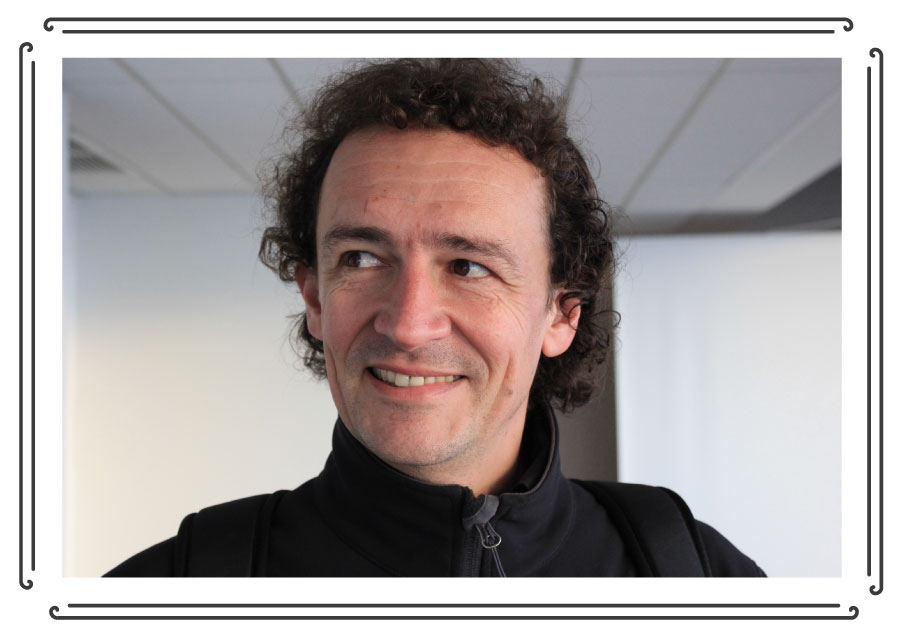Eric Dombrowsky is one of the founders of Mercator Ocean and was its scientific and technical director until 2014. He entered oceanography in 1988 with his PhD on data assimilation, and over the next 25 years he contributed directly to the development and structuring of operational oceanography in Europe and worldwide.
Member of the executive committees of the major European projects Mersea and MyOcean, which paved the way for the current Copernicus Service, co-chairman of the international program GODAE Ocean View, Eric created the principles of the engineering that still uphold our modern ocean forecasting: scientific, operational, and open.
He left us on August 25, 2022.
To remember Eric is also to explore his career and his scientific talent to understand the mark he left and his legacy that will continue well into the future, at Mercator Ocean and in operational oceanography. After studying engineering in Paris, he prepared for a career in robotics in 1988, but crossed paths with oceanographers in Toulouse, spoke with Michel Lefèbvre, detected the wind that was blowing through the community (the Topex/Poseidon space altimetry mission was just about to be launched). He changed his mind and entered oceanography, discovered data assimilation applied to the ocean during his LEGOS[1] thesis with Pierre De Mey, and never lost an opportunity to embark on a voyage to confront the reality of currents. This is the moment when oceanographers discover how to data observed at sea with floats and from space with satellites in mathematical models.
Eric obtained his PhD in 1991 and joined CLS[2] where he continued his studies in space oceanography and modeling, and designed his first models of operational forecasting systems for SHOM[3]. In particular, he designed the SOPRANE system (Regional Operational Analysis and Forecasting System for the Northeast Atlantic), the first building block of SHOM’s operational forecasting program for the French Navy. In 1995, Eric was one of the experts invited to La Chapelle d’Aubareil, a small village in the Perigord region of France, to think about how to model the ocean in order to describe and forecast it operationally, just as meteorologist describe the atmosphere. He thus contributed to the new “Mercator project” of which he became one of the founders and future pillars. He worked on the feasibility of the project and its scientific engineering. In the summer of 1999, he not only took on the scientific and technical direction of the project, but also made a commitment to design, develop and put into operation a first prototype forecasting system within 18 months. Eric kept his word and the first Mercator forecast bulletin was broadcast on January 17, 2001. Mercator was born! Operations have never been interrupted since. When the structure was created, he took over the scientific and technical management. In less than 10 years, he brought our French centre to the forefront of the world’s ocean forecasting capabilities with global coverage, mesoscale resolution (1/12°), a multi-observation approach, continuous real-time service and a reanalysis service.
With the same determination and scientific rigor, Eric was involved in many international scientific initiatives and projects such as GOOS/ETOOFS. For more than twenty years, Eric has dedicated all his talent and commitment to ocean science to service this new operational component of oceanography. What he created at Mercator Ocean lives on today. Eric was a “doer”, a curious, active and unquenchable advocate of the sea. He never stopped creating and disseminating operational oceanography that was uncompromising in its scientific foundations and perfectly reliable in its operations. Today, it is a reference worldwide.
[i] LEGOS : Laboratoire d’Etudes en Géophysique et Océanographie, [ii] CLS : Collecte Localisation Satellites, [iii] SHOM : Service Hydrographique et Océanographique de la Marine, [iv] GOOS/ETOOFS: Global Ocean Observing System/ Expert Team on Operational Ocean Forecast Systems, [v] GODAE: The Global Ocean Data Assimilation Experiment, [vi] MERSEA: Marine Environment and Security for the European Area
You can leave a message to share your memories
It would be a pleasure for us to share with his family the richness of this community in which he was so happy.


